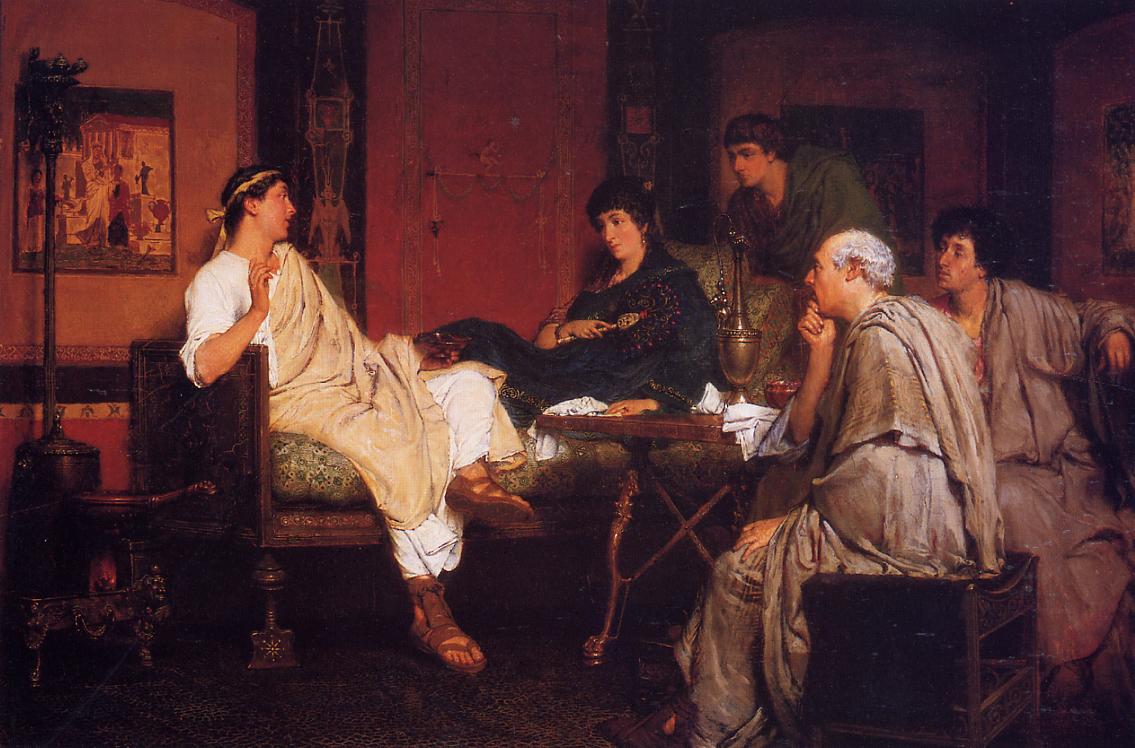„Das leichte Rad des Schicksals dreht sich in schnellen Kreisen.“
Elegien I, V, 70
Original lat.: "Versatur celeri Fors levis orbe rotae."
Albius Tibullus war ein römischer Elegiker der augusteischen Zeit.

„Das leichte Rad des Schicksals dreht sich in schnellen Kreisen.“
Elegien I, V, 70
Original lat.: "Versatur celeri Fors levis orbe rotae."
„Oft pflegen im Gold viele Übel zu stecken.“
Elegien I, IX, 18
Original lat.: "Saepe solent auro multa subesse mala."
„Ein kultiviertes Mädchen meidet die Küsse eines Alten.“
Elegien I, IX, 74
Original lat.: "Senis amplexus culta puella fugit."
„Spät kommt die Strafe auf leisen Sohlen.“
Elegien I, IX, 4
Original lat.: "Sera tamen tacitis Poena venit pedibus."
„Wer weise ist, freue sich im schweigsamen Herzen.“
Elegien III, XIX, 8
Original lat.: "Qui sapit, in tacito gaudeat ille sinu."
„Wer wollte die Waffen gegen die Götter richten?“
Elegien I, VI, 30
Original lat.: "Contra quis ferat arma deos?"
„Besiegt werden harte Herzen durch weiche Bitten.“
Elegien III, IV, 76
Original lat.: "Vincuntur molli pectora dura prece."
„Von wem die Musen berichten werden, der wird leben.“
Elegien I, IV, 65
Original lat.: "Quem referent Musae, vivet."
“It is enough for me to have shown the will.”
Est nobis voluisse satis.
Bk. 4, no. 1, line 7.
Misattributed
“Be bold: Venus herself aids the stout-hearted.”
Audendum est: fortes adiuvat ipsa Venus.
Bk. 1, no. 2, line 16.
Elegies
“Whatsoever [Love] does, whithersoever she turns her steps, Grace follows her unseen to order all aright.”
Illam, quidquid agit, quoquo vestigia movit,<br/>componit furtim subsequiturque Decor.
Illam, quidquid agit, quoquo vestigia movit,
componit furtim subsequiturque Decor.
Bk. 4, no. 2, line 7.
Tibullus' authorship of this poem is doubtful.
Elegies
“Because of thee thy Egypt never sues for showers, nor does the parched blade bow to Jove the Rain-giver.”
Te propter nullos tellus tua postulat imbres,<br/>arida nec pluvio supplicat herba Iovi.
Te propter nullos tellus tua postulat imbres,
arida nec pluvio supplicat herba Iovi.
Bk. 1, no. 7, line 25.
Of the River Nile.
Variant translation: Because of you your land never pleads for showers, nor does its parched grass pray to Jupiter the Rain-giver.
Elegies
“Tis hard to feign merriment when the heart is sad.”
Difficile est tristi fingere mente iocum.
Bk. 3, no. 6, line 34.
Misattributed
“May I look on thee when my last hour comes; may I hold thy hand, as I sink, in my dying clasp.”
Te spectem, suprema mihi cum venerit hora,<br/>Et teneam moriens deficiente manu.
Te spectem, suprema mihi cum venerit hora,
Et teneam moriens deficiente manu.
Bk. 1, no. 1, line 59.
Variant translation: May I be looking at you when my last hour has come, and dying may I hold you with my weakening hand.
Elegies
“Jupiter laughs at the false oaths of lovers.”
Periuria ridet amantum<br/>Iuppiter.
Periuria ridet amantum
Iuppiter.
Bk. 3, no. 6, line 49.
Misattributed
“Be not afraid to swear. Null and void are the perjuries of love; the winds bear them ineffective over land and the face of the sea. Great thanks to Jove! The Sire himself has decreed no oath should stand that love has taken in the folly of desire.”
Nec iurare time: veneris periuria venti<br/>inrita per terras et freta summa ferunt.<br/>gratia magna Iovi: vetuit Pater ipse valere,<br/>iurasset cupide quidquid ineptus amor.
Nec iurare time: veneris periuria venti
inrita per terras et freta summa ferunt.
gratia magna Iovi: vetuit Pater ipse valere,
iurasset cupide quidquid ineptus amor.
Bk. 1, no. 4, line 21.
Elegies
“Fond Hope keeps the spark alive, whispering ever that to-morrow things will mend.”
Credula vitam<br/>spes fovet et fore cras semper ait melius.
Credula vitam
spes fovet et fore cras semper ait melius.
Bk. 2, no. 6, line 19.
Elegies
“And some aged man in homage to his ancient love will yearly place a garland on her mounded tomb, and, as he goes, will say: "Sleep well and peacefully, and above thy untroubled ashes let the earth be light."”
Atque aliquis senior veteres veneratus amores<br/>annua constructo serta dabit tumulo,<br/>et "bene" discedens dicet "placideque quiescas,<br/>terraque securae sit super ossa levis."
Atque aliquis senior veteres veneratus amores
annua constructo serta dabit tumulo,
et "bene" discedens dicet "placideque quiescas,
terraque securae sit super ossa levis."
Bk. 2, no. 4, line 47.
Elegies
“Who was the first discoverer of the horrible sword? How savage was he and literally iron!”
Quis fuit, horrendos primus qui protulit enses?<br/>quam ferus et vere ferreus ille fuit!
Quis fuit, horrendos primus qui protulit enses?
quam ferus et vere ferreus ille fuit!
Bk. 1, no. 10, line 1.
Elegies